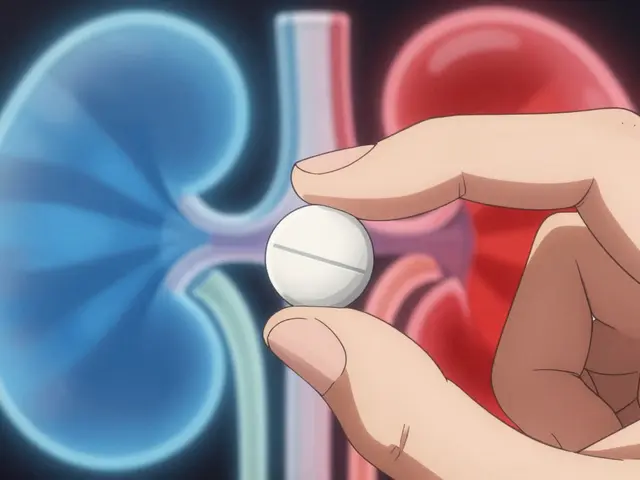Heart Health: Easy, Practical Steps Men Can Use Today
Got a busy life and worried about your heart? You don’t need to overhaul everything overnight. Small, focused changes reduce risk fast and make medications work better. Below are concrete steps you can take, common medicine questions answered, and clear warning signs that mean see a doctor now.
Simple Daily Habits That Help
Move more. Aim for 30 minutes of moderate activity most days — brisk walking, cycling, or even a fast-paced household workout. You’ll improve blood pressure, circulation, and endurance without killing your schedule.
Cut salt and processed food. Try cooking one extra meal at home each week and swapping canned or frozen meals for fresh or plain frozen veggies. Less sodium helps blood pressure faster than many other changes.
Choose better fats. Replace fried food and packaged snacks with nuts, olive oil, and fatty fish like salmon twice a week. Those choices support healthy cholesterol and reduce inflammation.
Limit booze and quit smoking. Alcohol in excess raises blood pressure. Smoking damages vessels and cuts oxygen to your heart. Cutting back pays off within months.
Common Meds and Practical Questions
If your doctor prescribes a blood pressure or heart medicine, take it reliably — skipping doses reduces its protection. Two meds you’ll hear about: beta-blockers like metoprolol and calcium channel blockers like nifedipine (brand Procardia). Each works differently: beta-blockers slow heart rate, calcium channel blockers relax vessels. Talk with your doctor if side effects bother you — there are alternatives and combinations that often help.
Worried about switching meds? The site has articles comparing metoprolol alternatives and a clear guide on Procardia — these explain pros, cons, and common side effects in simple terms. Use them to have a smarter chat with your clinician.
Monitor at home. A reliable blood pressure cuff and occasional heart rate checks give you and your doctor useful data. Write down readings for clinic visits so treatment can be adjusted sensibly.
Watch for red flags: sudden chest pain or pressure, trouble breathing, fainting, sudden heavy sweating, or numbness in one side of the body. Those are urgent — call emergency services right away.
Stress matters. Chronic stress raises cortisol and can worsen heart risk. Try short daily routines: 5–10 minutes of breathing, a quick walk after meals, or a hobby that relaxes you. These small habits lower stress and help blood pressure and sleep.
Finally, get regular check-ups. A yearly physical with basic blood work, blood pressure checks, and a talk about family history helps catch issues early. Bring a list of meds and questions — it makes the visit productive.
If you want, start with one habit this week: walk 15–30 minutes after dinner or cut one processed meal. Small wins build momentum and keep your heart in better shape for years.

Carvedilol and Effective Blood Pressure Monitoring: A Crucial Partnership
This article dives into the relationship between Carvedilol, a common medication for heart conditions, and the importance of monitoring blood pressure. It explains how Carvedilol works, why regular blood pressure checks are vital, and offers practical tips for effective monitoring at home.




